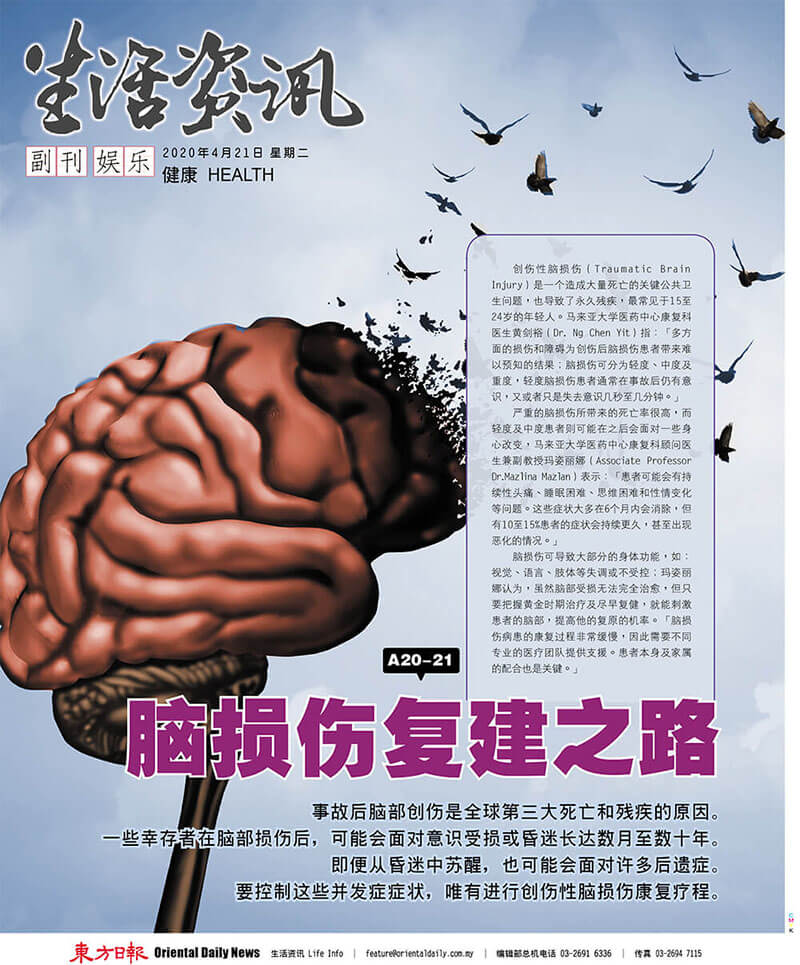Services
Neuro-Optometric Rehabilitation is a specialized field within optometry dedicated to addressing a wide range of visual disorders arising from brain injuries, developmental delays, or other neurological conditions.
Our eyes are intricately connected to the brain. When individuals experience brain injuries, whether due to a stroke, car accident, or developmental delay, their vision can be significantly impaired.
When the alignment of both eyes is disrupted, the brain struggles to merge two separate images into a single, clear one. This condition is known as binocular vision dysfunction (BVD), and it has been associated with the onset of anxiety and panic attacks, often resulting from brain injuries.
Anxiety stemming from BVD can even lead to agoraphobia, as visually complex environments can overload the senses and trigger panic attacks.
THE FOLLOWING DESCRIBES A SCENARIO OF ATTEMPTING TO DRIVE WHILE EXPERIENCING DOUBLE VISION
- Challenges with handwriting
- Increased anxiety during visually demanding tasks
- Inaccuracies in reaching for and grasping objects
- Issues with balance and movement, such as veering off course while walking, tripping, or falling
- Difficulties in driving, particularly with staying in the correct lane, maintaining appropriate speeds, handling multiple tasks at once, and navigating.
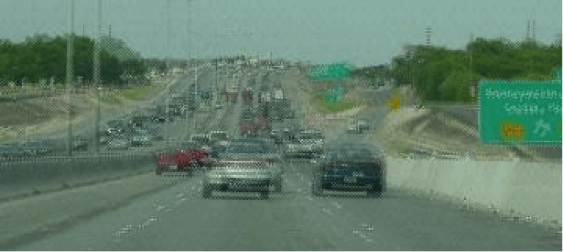
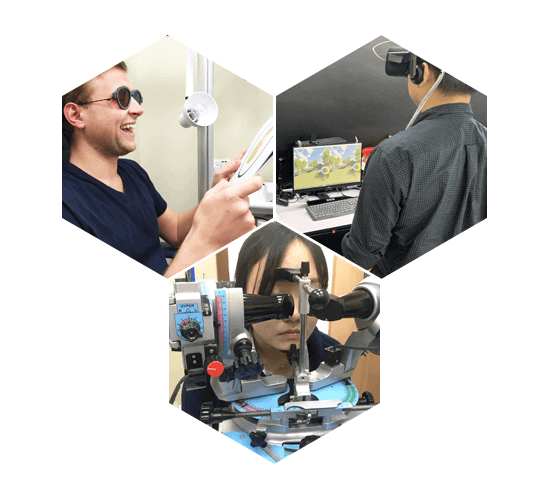
Individuals experiencing Acquired Brain Injury (ABI) or those with Neuro-Developmental or Neuro-Degenerative Disorders often encounter a range of Functional Vision Problems that can adversely affect their performance in Activities of Daily Living (ADLs). Following a head injury, it’s not uncommon for individuals to experience a shift in their sense of body midline, resulting in the following symptoms:
1. Dizziness or nausea
2. Spatial disorientation
3. Consistently favoring one side of a hallway or room
4. Collisions with objects while walking
5. Poor walking posture, including leaning backward on heels, forward, or to one side when walking, standing, or sitting in a chair
6. Perception of the floor as being tilted
7. Associated neuromotor challenges related to balance, coordination, and posture
Vision problems resulting from brain injuries can have a profound impact, potentially leading to disability, increased dependence, and a higher risk of secondary injuries if left untreated. Effective treatment options may include specialized therapeutic lenses, which are worn much like regular glasses, or a more comprehensive rehabilitation program.
One such approach is neuro-optometric rehabilitation therapy, a non-invasive process designed to address visual, perceptual, and motor disorders. Through personalized sessions with our Vision Therapist or Behavioral and Developmental optometrist at Sun Time Vision Specialist, individuals can acquire the skills necessary to regain control of their vision.
What sets the Neuro-Optometric Evaluation apart is its holistic approach. Beyond the traditional eye exam, it encompasses assessments of basic binocular visual skills, eye health, and other eye-related factors. The evaluation’s primary objective is to assess how the visual process interacts with other sensory feedback mechanisms. Additionally, it evaluates visual information processing skills relevant to both vocational and avocational tasks.
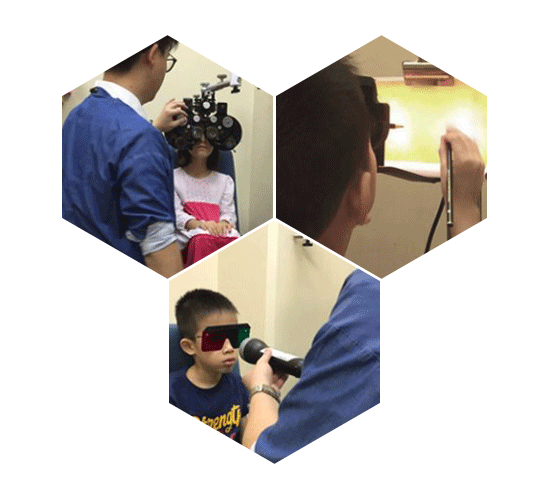
OPTOMETRY AND REHABILITATION
The majority of healthcare professionals, including those working in head trauma rehabilitation centers, often lack sufficient awareness of the visual problems resulting from Traumatic Brain Injury (TBI) and the associated visual-perception consequences. This knowledge gap creates a significant deficiency in rehabilitative services, resulting in incomplete treatment for patients. Consequently, vision care professionals play a crucial role in the rehabilitation process.
Through the application of Neuro Optometric Rehabilitation and vision therapy, along with the appropriate utilization of specialized lenses, Behavioral & Neuro-developmental optometrists with specific training collaborate with Traumatic Brain Injury patients to enhance their visual information processing and overall visual function.
Vision therapy and Neuro Optometric Rehabilitation offer practical and highly effective therapeutic approaches. Following a comprehensive evaluation, examination, and consultation, patients’ issues can be accurately diagnosed. Tailored treatment plans are then prescribed to enhance the patients’ visual system and improve their visual efficiency, ultimately leading to significant enhancements in their overall vision quality.
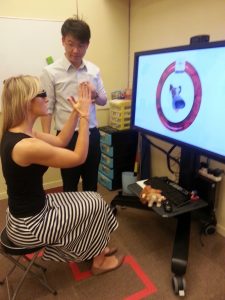
GREAT VISUAL SKILLS LEAD TO EXCELLENT VISION
- Tracking is the ability of the eye to smoothly follow a moving object.
- Fixation is the capacity of the eyes to quickly and accurately locate and inspect a series of stationary objects (such as words while reading).
- Focus Adjustment is the capability of the eyes to transition swiftly between near and distant objects without creating blurred visual images.
- Depth Perception refer to the skill to gauge the relative distances between objects, determining their proximity or distance.
- Peripheral Vision denotes the ability to monitor and interpret events in the surrounding field of vision.
- Binocularity: is the coordination of both eyes to function together seamlessly, equally, and accurately.
- Sustained Attention describes the capacity to maintain focus on a specific task despite external distractions, such as noise.
- Visualization involves the accurate mental creation and storage of images for future recall.
- Near Vision Acuity is the ability to clearly see, inspect, identify, and understand objects within arm’s length.
- Distance Acuity refer to the capacity to clearly see, inspect, identify, and understand objects at a distance.
- Vision Perception is the comprehension of the meaning of visual stimuli.
A Neuro-Optometric Evaluation includes comprehensive testing to assess the quality of your vision and determine the extent to which it may impact your ability to perform everyday activities, such as reading, maintaining balance and coordination, tying shoes, pouring liquids, and more.
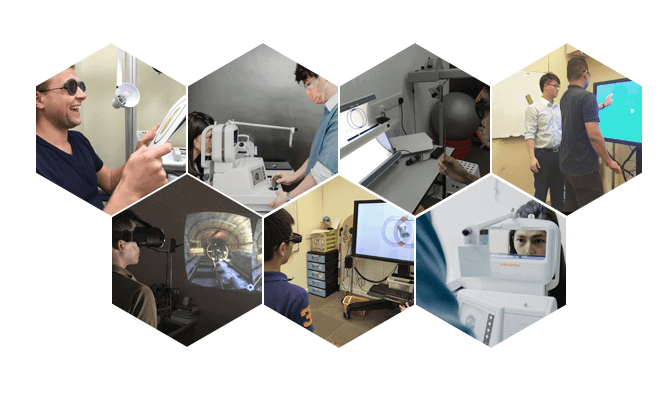
AT WHAT POINT DURING REHABILITATION SHOULD INDIVIDUALS SEEK CONSULTATION FOR VISION ISSUES?
Seeking consultation with a neuro-developmental vision specialist is recommended without delay, even when the physical eye structures appear healthy. Visual processing is primarily centered in the brain, and timely consultation can facilitate the recovery of both vision and the overall visual system. It’s important to note that vision can have direct and indirect effects on aspects such as balance and dizziness.

